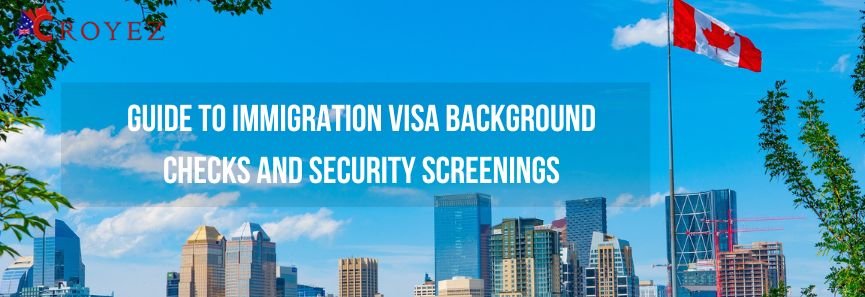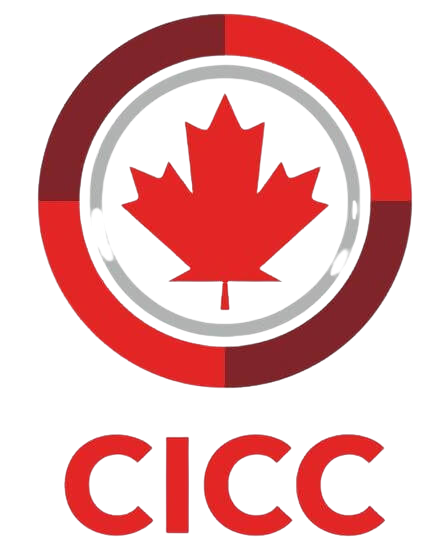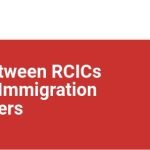Every applicant must go through a thorough process called immigration screening or immigration background checks. The immigration screening process helps to detain criminals, bankrupts, and ineligible applicants while ensuring the safety and security of the countries. No matter their race, nationality, or religion, applicants are subject to a background check by the federal agency in charge of managing immigration benefits.
Background Check for Canada Immigration
A background check (BGC) is a process used to confirm a visa applicant’s criminal and/or security history to determine whether they are eligible to enter Canada. Background checks are a collective term for information sharing, security screening, and criminality checks. There is a difference between a background check, in which the applicant is typically not actively involved, and a police clearance certificate, also known as a certificate of non-criminal activity (used for a criminality check). Actually, a background check involves three steps:
-
Criminality Check
Have you ever been involved in any crime? This can be anything from a DUI to involvement with organized crime. In these situations, the RCMP, or Royal Canadian Mounted Police, works with other local police forces in Canada and abroad, as well as with intelligence agencies and other agencies, much like the FBI or a federal police force.
-
Security Screening
Are you a potential threat to the security and well-being of Canada and Canadians? The three federal agencies that handle security screening are CBSA, CSIS, and IRCC.
-
Information Sharing
A crucial component is that while conducting the background check, several agencies, including those listed below, may communicate and share information.
- CBSA (Canada Border Services Agency): The officers who interview you at your Port of Entry are all part of the CBSA, which is on the front lines of immigration in Canada.
- CSIS (Canadian Security Intelligence Service): This is the country’s top intelligence organization, collecting and analyzing data from various sources, including international counterparts.
- IRCC (Immigration, Refugees and Citizenship Canada): Canada’s immigration authority, who, as we’ll explain in more detail below, ultimately decides who is admitted. The process is also started by IRCC.
In order to make sure applicants are not a threat to national security, CSIS and CBSA offer security advice to IRCC. They don’t decide on application requests. In the event that you are submitting a security screening application for:
- A visitor visa Canada
- An eta
- Citizenship
- Permanent resident Canada
- Refugee status outside of Canada
- A study permit Canada
- A work permit Canada
- And a temporary residence permit
The Immigration and Refugee Board will decide whether to grant you refugee status if you are applying from within Canada. By requesting your Canadian Security Intelligence Service, CSIS Notes, you can obtain information from CSIS about your immigration or citizenship security screening. Similarly to that, you can ask CBSA, Canada Border Services Agency, for your information by asking for the Canada Border Services Agency Notes. Making such requests won’t hasten the immigration or naturalization processes.
Also Read: How can your Immigration Application not be Rejected?
What is the Background Check and Screening Procedure?
Investigation techniques used in an immigration background check include three distinct processes:
- The IBIS Name Check or the Inter-Agency Border Inspections System
- FBI fingerprint check
- A name check by the FBI
Before the interview schedule is announced, all immigration applicants must pass these three tests. The immigration process will fail if any of these checks yields a negative result after investigations are conducted.
The first step in the immigration security screening process is carried out by IBIS, which has a centralized system for gathering data from various sources to quickly determine whether an applicant is qualified or if further background investigation is necessary.
FBI Fingerprint checks take between twenty-four and forty-eight hours. If criminal histories are revealed, and the violation demonstrates that the applicants are not eligible to receive a green card, the investigation will be halted as advised.
An FBI name check process is required of applicants. It takes only about 14 days, or longer if an additional resolution is required or certain results require additional research. An applicant will have a better chance of entering the US to live or work if they pass all of these checks. The federal agencies in Canada and Australia each follow the same process.
Also Read: Fees For Canadian Immigration Processing
How Long Does It Take To Get Through Background and Security Checks?
The service delivery standard for screening applications for permanent residents is 110 calendar days, during which time 80% of the applications are processed.
Some applicants for permanent residence in Canada become concerned about the status of their application because the Canadian background check processing time takes so long to complete. They should be aware that although most security checks are completed in 1-2 months, processing security screenings can occasionally take 9–18 months.
Consider filing a writ of mandamus if the applicant has been waiting for more than a year and their application appears to be stuck in security screening.
When a Canada background check processing time has been “unreasonably long,” a federal court may issue a writ of mandamus to order a subordinate agency (such as IRCC) to take action. A delay must meet the following criteria to be considered unreasonable: it must be longer than the nature of the process required, not be the fault of the applicant or the applicant’s legal counsel, and lack a convincing justification from the authority in question.
Tips to Increase Your Chances of Obtaining an Immigration Visa
Self-running a background check only takes a few minutes.
You must submit personal data about yourself, including your full name, address, and birthdate. The system will be able to locate a record of your past using that information. Most of the time, the record is spotless; however, occasionally, an offense will appear on the record, and it is best to take care of these before you are rejected. Before applying for a visa or green card, reviewing your records and correcting any inaccurate information is wise.
Hiring a decent and reputable background screening company is currently the best way to authenticate your background check for immigration purposes.
They can offer exceptional services that are tailored to your needs. Additionally, they give you a certificate of clearance at the conclusion of the screening process, which the visa officer can stamp on your passport.
Also Read: Top Canadian Immigration Pathways From India
In the future, the information from security screening applications will be entered into a system that will be shared by IRCC, CBSA, and CSIS when all applications (temporary and permanent resident) are submitted electronically. The security screening procedure can be automated thanks to the shared system. A pilot project is already underway to determine whether these goals are feasible.










